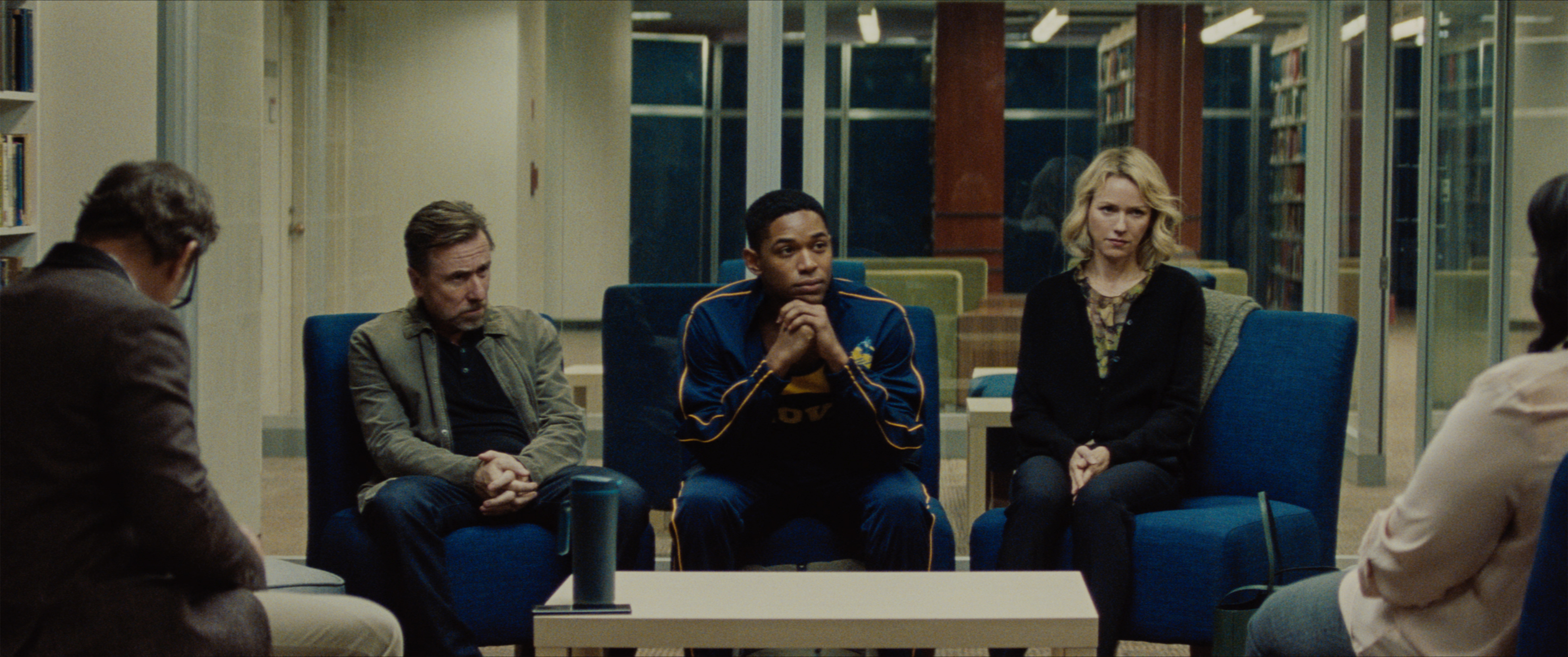
Luce is one of those films that comes along at just the right point in time in which the country needs it in order to spark an important conversation.
From the outside looking in, Luce (Kelvin Harrison, Jr.) is the smartest person in the school. He has it going for him in every which direction. When he’s not in class, he’ll be doing his duties as either the debate-team captain or participating in track. In other words, he’s the immigrant living the American dream. He’s open about the fact that Amy (Naomi Watts) and Peter (Tim Roth) adopted him out of Eritrea when he was ten years old. They gave him a life that he otherwise might not have been able to live. He didn’t choose to be born in a war-torn country. Nor did he gave a choice in being a soldier as a child.
Luce’s life changes in an instant when a teacher, Harriet Wilson (Octavia Spencer) not only breaks into his locker to discover fireworks but is disturbed by a writing assignment. Did the political views found in this writing assignment lend any credence in checking his locker? The fact that Luce is an exemplary student shows that she has no reason to check his locker. Maybe the political views found in this writing assignment were disturbing but Luce wrote it as the assignment required. It doesn’t mean he agrees with what it he wrote. This does happen in school assignments from time to time. I remember times in school when assignments required me to take a stance that I didn’t agree with. I’m not saying it’s right but it is what it is!
Wilson doesn’t just force a meeting with Luce’s parents but takes the matter to Principal Dan’s (Norbert Leo Butz) office as well. The principal wishes to protect his students, especially his favorite pupil of all. She shows a side of Luce that–for better or worse–only she can see. Amy and Peter do what they can to protect him but it remains to be seen if it’s enough.
The performances here are a combination of both electrifying and mesmerizing. Kelvin Harrison, Jr. is phenomenal. The actions that Mrs. Wilson takes is something that sticks with us long after the credits end. I give much credit to Octavia Spencer for her performance here. Was she in the right or wrong? It’s seemingly hard to say. Regardless of which, Julius Onah and JC Lee’s script offers a lot of commentary on issues that are very relevant in today’s society.
My experience is different from that of Luce. I’ll be the first to admit it. There’s something in viewing this film that should have us consider things that we didn’t consider thinking about before. On paper, it’s easy to root for someone like Amy. At the same time, I can’t help but feel for Harriet in where she’s coming from. There’s a lot that Spencer brings to the character to where you can’t help but empathize with her. Meanwhile, there are aspects about this film in which I know I’m not the right person to discuss it because those aren’t my experiences. Yes, this is a film that makes us think harder about what we’re doing but also one in which we should especially be listening to people of color.
Luce somehow finds a way to offer social commentary on all sorts of intersections–especially privilege–in a thrilling fashion.
DIRECTOR: Julius Onah
SCREENWRITERS: Julius Onah, JC Lee
CAST: Naomi Watts, Octavia Spencer, Kelvin Harrison Jr., Norbert Leo Butz, Andrea Bang, and Tim Roth





Comments are closed.